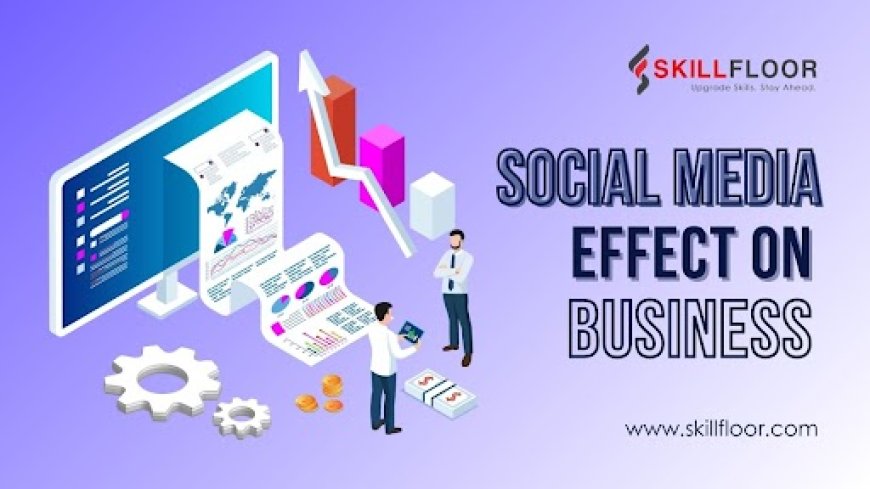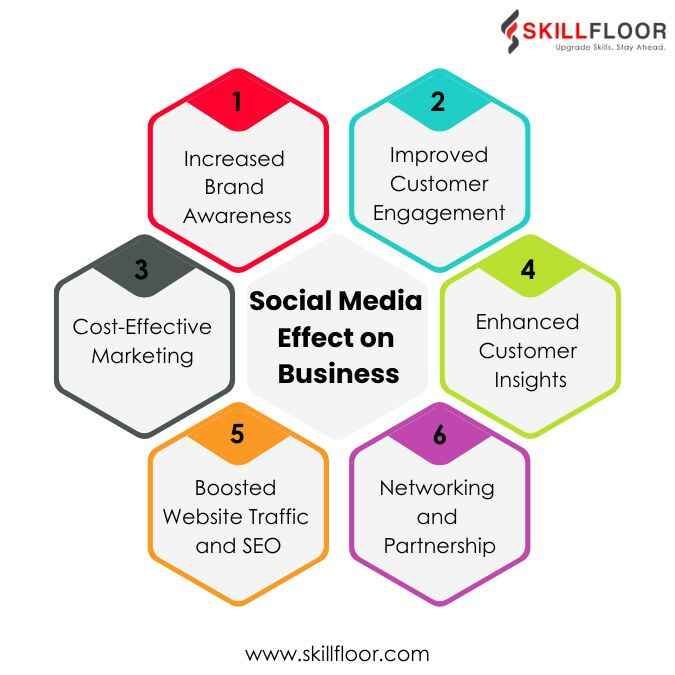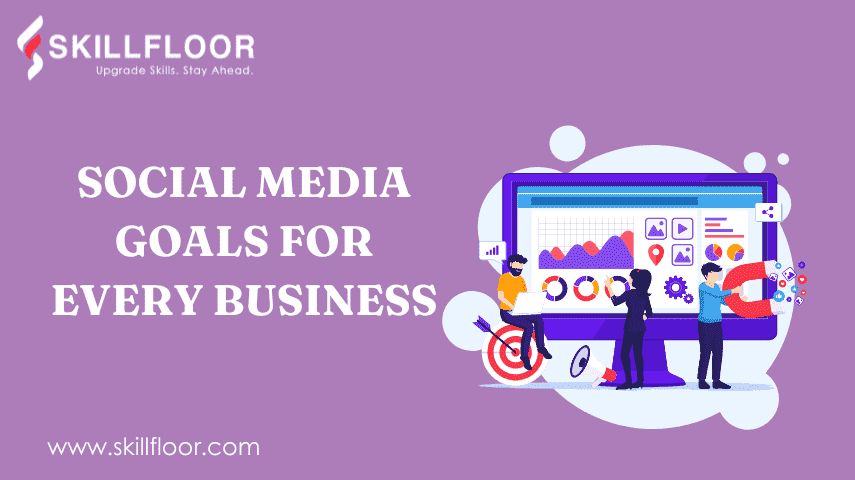How Social Media Effect on Business
Explore how social media impacts businesses, driving brand awareness, customer engagement, and sales through strategic digital marketing.

The social media effect on business is undeniable, changing the way companies interact with their customers and market their products. Platforms like Facebook, Twitter, and Instagram are now essential tools for businesses, helping them reach a wider audience and engage with customers in real-time. This change has affected marketing strategies and has also influenced customer service and brand loyalty.
The social media effect on business extends beyond marketing, impacting various aspects of operations. Companies may now collect valuable customer data and feedback directly from social media interactions, helping them improve their products and services more quickly. Furthermore, social media allows businesses to market and promote their products and services at a lower cost, generally with a larger return on investment than traditional advertising approaches.
However, the social media effect on business also comes with challenges. Negative reviews or comments can spread rapidly, potentially damaging a company's reputation. It requires businesses to be vigilant and responsive to maintain a positive online presence. Overall, the integration of social media into business strategies is crucial for staying competitive in the online market.
The Positive Effects of Social Media on Business
1. Increased Brand Awareness
One of the major advantages of social media is the enhanced brand exposure it brings. Businesses may easily reach a worldwide audience with a few clicks. Platforms such as Facebook, Instagram, Twitter, and LinkedIn enable businesses to build accounts and publish content that matches their brand identity. Businesses can increase brand awareness by consistently posting and engaging with their audience.
2. Improved Customer Engagement
Social media platforms provide a unique chance for businesses to interact directly with their customers. Companies can use comments, emails, and live chats to reply to customer requests, handle problems, and gather useful feedback. This direct engagement strengthens customer relationships, encouraging loyalty and trust.
3. Cost-Effective Marketing
Social media marketing is typically less expensive than traditional advertising strategies. The minimal expenses associated with developing and sharing information are especially beneficial to small enterprises. Paid advertising solutions on social media sites enable businesses to target certain demographics, ensuring that their marketing efforts reach the intended audience.
4. Enhanced Customer Insights
Social media networks give businesses important information about their clients. Analytics technologies can help businesses understand customer behavior, preferences, and trends. This data can be utilized to personalize marketing techniques, create new goods, and enhance customer service.
5. Boosted Website Traffic and SEO
Businesses can increase website traffic by publishing material on social media platforms. Links to blog posts, product pages, and other online material persuade followers to visit the company's site. Increased website traffic can help boost search engine rankings, making it easier for prospective clients to find the company online.
6. Networking and Partnership
Social media tools make it easier to network and build collaborations. Businesses can connect with influencers, industry experts, and other firms to work together on initiatives, share information, and broaden their reach. These collaborations have the potential to open up new prospects and boost market exposure.

The Negative Effects of Social Media on Business
1. Negative feedback and Public Scrutiny
While social media enables direct engagement with customers, it also exposes firms to unwanted reviews and public scrutiny. Negative reviews, complaints, and viral articles can harm a company's reputation. To avoid potential damage, organizations must handle unfavorable criticism properly and swiftly.
2. Time-Consuming
Having an active social media presence can be time-consuming. Creating content, responding to comments, and monitoring analytics all demand a significant amount of effort. Small businesses with limited resources may struggle to manage their social media presence.
3. Risk of Security Breaches
Social networking networks may be subject to security breaches and cyber-attacks. Businesses must make efforts to protect their accounts and sensitive data. Security breaches can result in a loss of customer trust and even legal consequences.
4. Algorithm Changes
Social media networks often adjust their algorithms, affecting the exposure of a company's content. These shifts might make it difficult for firms to reach their target audiences naturally, forcing them to constantly alter their strategy.
5. Dependence on Social Media Platforms
Relying too heavily on social media for marketing and customer engagement might be problematic. If a platform changes its policies or has technological problems, it might interrupt a company's operations. Diversifying marketing activities and reducing reliance on social media are critical for long-term stability.
What types of content perform best on social media?
Visual content consistently outperforms other types of content on social media due to its engaging and easily digestible nature. Images, videos, and infographics are particularly effective because they capture attention quickly and can convey complex information Briefly. High-quality images can showcase products, tell stories, and create an emotional connection with the audience. Videos, including live streams and short clips, provide a dynamic way to demonstrate product features, share behind-the-scenes insights, or highlight customer testimonials, making them highly engaging and shareable.
Infographics are powerful tools for presenting data and statistics in a visually appealing format, making complex information more accessible and understandable. They are especially useful for explaining processes, illustrating trends, and summarizing research findings. The visual appeal of infographics helps retain audience interest and encourages sharing, thereby increasing reach and engagement.
However, businesses need to tailor their content to the preferences of their target audience. Conducting A/B tests to experiment with different types of content can provide insights into what resonates most with followers. By analyzing engagement metrics such as likes, shares, comments, and click-through rates, businesses can refine their content strategy to optimize performance and effectively connect with their audience on social media.
Social media has a significant impact on business, presenting both opportunities and challenges. Understanding the positive and negative aspects allows companies to design effective social media strategies. Businesses may improve their brand visibility, connect with customers, and drive growth by developing a clear strategy, creating interesting content, and actively engaging with them. To negotiate the variable social media ecosystem, it is critical to remain watchful for potential dangers and change methods as needed. In the modern era, the impact of social media on business is apparent. Embracing its potential while addressing its obstacles can lead to long-term success and a competitive advantage in the marketplace.






























































